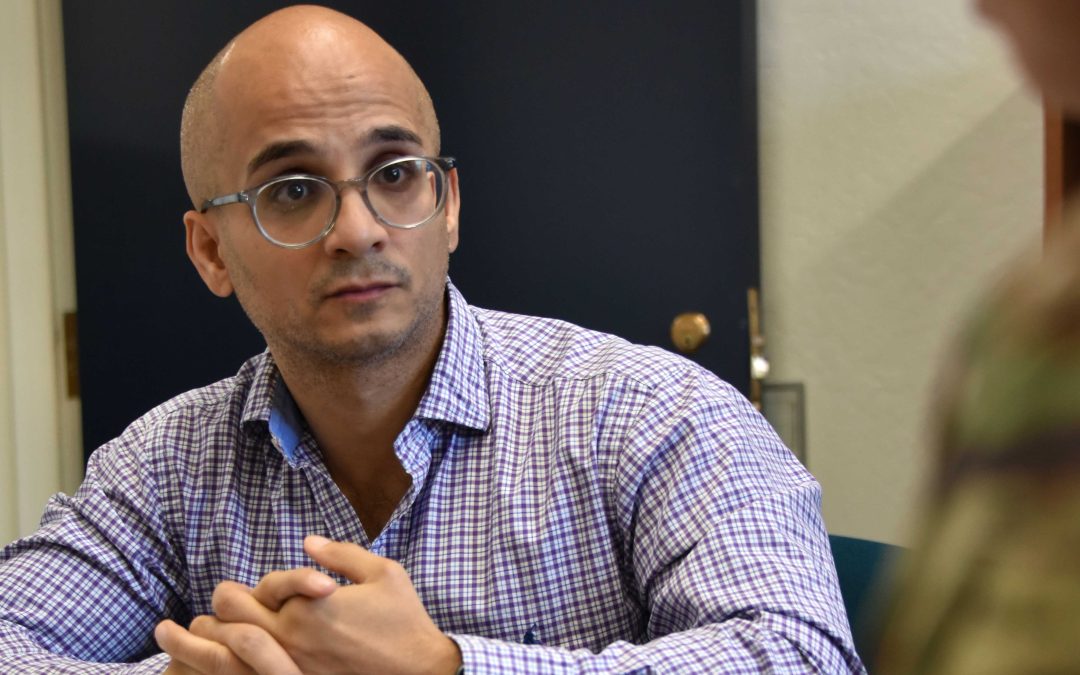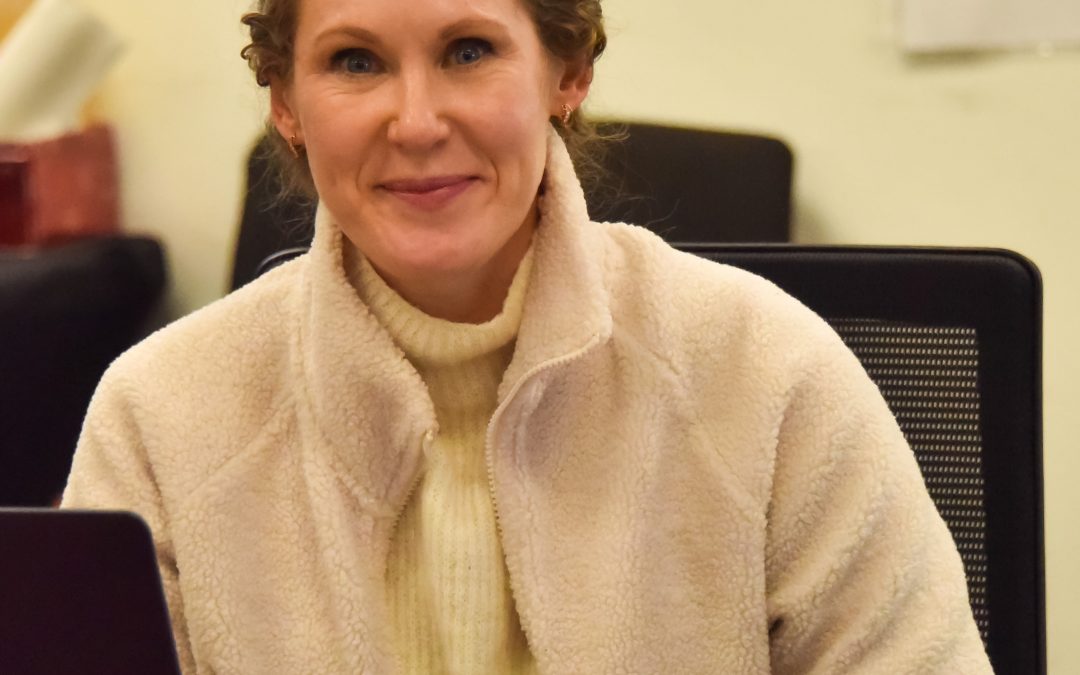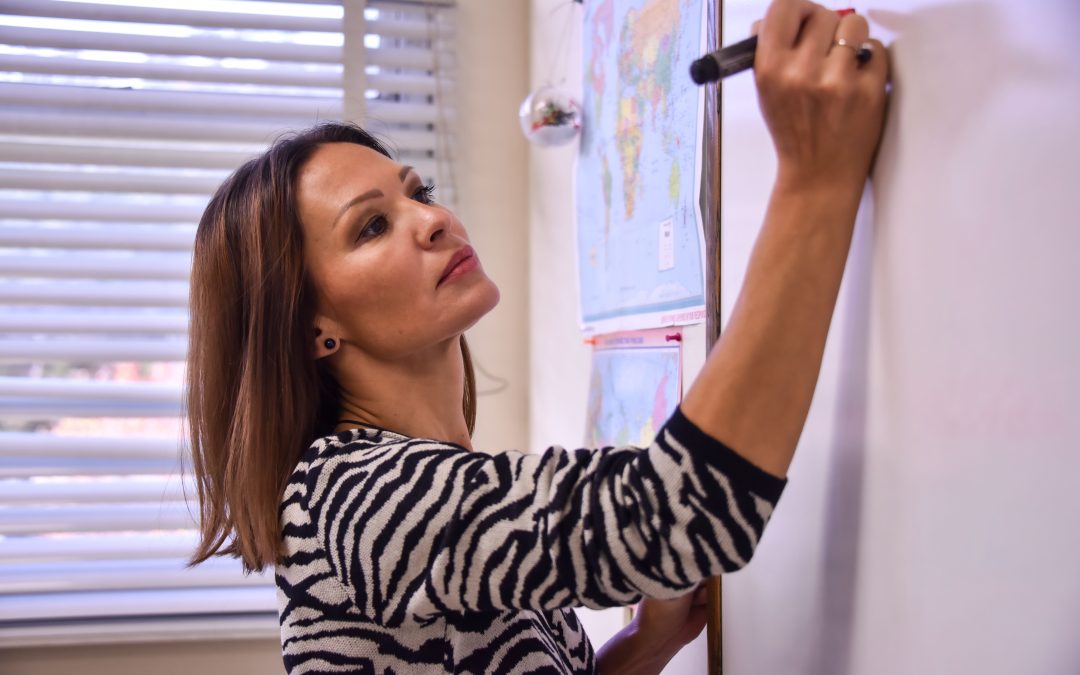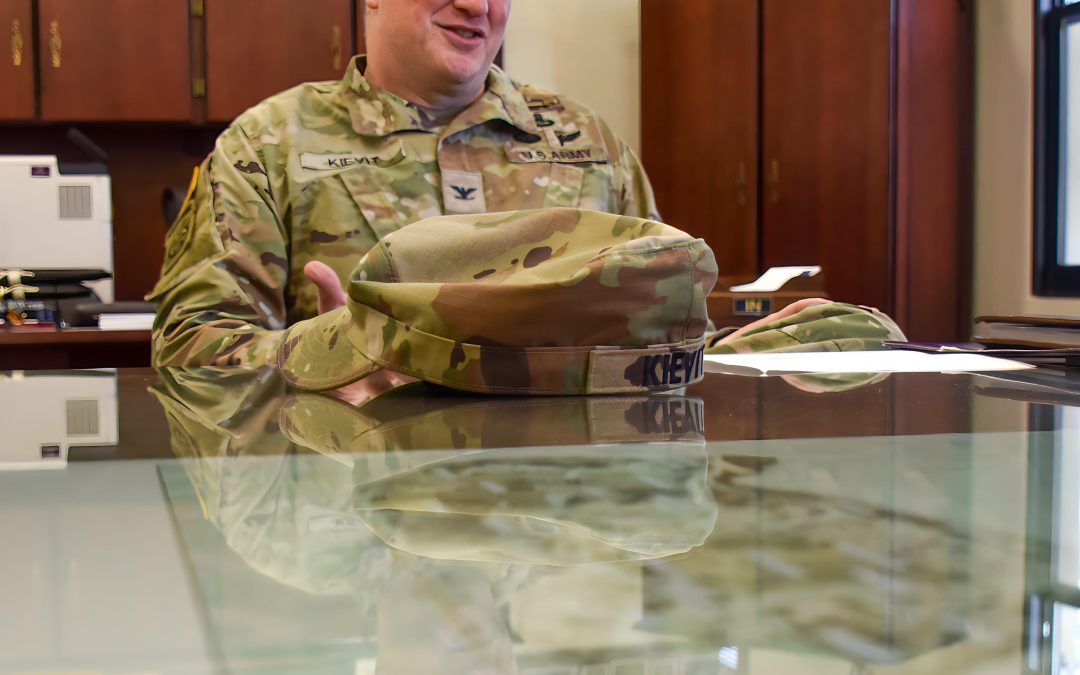By Natela Cutter
DLIFLC Public Affairs
Dr. Kimberly Osborne’s career has been anything but boring. Her jobs have taken her to such far-flung places as Afghanistan, Kosovo and Myanmar. Her vast experience in program planning and evaluation, media crisis management, and cultural studies has led her to her next challenge: reinvigorating the Center for Leadership Development program at the Defense Language Institute Foreign Language Center in Monterey.
“We all know DLIFLC is a unique place with instructors from all over the world. Each one was hired for some special skill that they have,” said Osborne. “The Center for
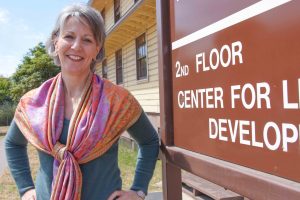
Dr. Kimberly Osborne stands in front of her building at the lower Presidio of Monterey near High Street Gate. (Photo by Natela Cutter)
Leadership Development was created to help strengthen the quality and depth of leadership capabilities across the organization and to provide for a happy and productive workforce.”
Created in 2017, the Center was established to enhance DLIFLC’s leadership capacity by providing context-specific training and development for current and future civilian leaders. It was also designed to help promote a highly-engaged and positive workplace that would effectively support the institute’s mission.
“We want to make it easier for people to take initiative for their own professional development. If people want to learn and grow in their career, and if they want to contribute in greater ways to DLI, that should be encouraged,” she said.
In 2013, it was precisely Osborne’s passion about effective strategic communication and cultural studies that led her to the next step in life. That year, she applied to the Department of Defense’s Civilian Expeditionary Workforce and was selected to become the Chief Strategic Communications Advisor to the Afghan National Security Forces.
“Three days after I landed in Kabul, my chief of staff told me that the communications function in the Afghan Army was broken and I needed to fix it. I complained of ignorance, but my CoS said, ‘You’re a scientist, so go figure it out.’ Gratefully, I was given a lot of latitude to do that. With such a varied background, I was able to draw references and ideas from many different places.”
Combining research with her professional experience in large corporations and academia, she crafted new approaches. She and her Army Special Operations boss presented her recommendations to the Afghan minister of defense and his leadership team. Though the plan was accepted and implemented, congressional funding dried up for Osborne’s program, and by 2014, many DOD civilians were sent home.
Right before coming to Monterey, Osborne spent time in Myanmar where she had a Fulbright grant to work in the Ministry of Social Welfare, Relief and Resettlement to help support capacity building efforts in government ministries. Her job there was to teach junior and senior staff officers about basic disaster management, leadership, and communication skills.
“For me, it’s important to solve root problems. Whenever I am looking at a business challenge, I always ask why. What is really happening here? Why is it happening? Trained as a communicator and as a qualitative researcher, it’s never enough just to know that things happen. I want to know how to affect positive change,” she said.
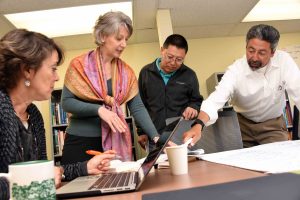
Dr. Kimberly Osborne discusses with attendees some of the methods of problem solving in decision making. (R-L) Sonia Estima, CLD Specialist, Dr. Osborne, Dr. Liwei Gao, chairperson at Asian I school, and Youssef Carpenter, education program specialist at the Training Analysis Division. (Photo by Natela Cutter)
With a small staff of three and one temporary detailee, there is much to do. “We are presently in the process of re-examining DLIFLC’s institutional needs assessment. The Leadership Development Road Map will be modified and new workshops will be created,” added Osborne. “As a new initiative, the organization is also starting up a program called the ‘CLD Incubator.’”
“Hopefully, the CLD Incubator will make CLD more accessible to DLI faculty and staff. A new Incubator initiative includes shorter courses — maybe an hour or two — which can accommodate larger groups,” she said.
To reach out to Language Teaching Detachment faculty located around the United States and abroad, Osborne is planning to create asynchronous online content.
“We are partnering with other units across DLI to develop online content … so LTDs and other people who cannot get to a workshop can also participate,” she said. “If our budget situation improves, we would love to be able to take our trainings on the road.”
Currently, CLD offers two-day workshops in Conflict Management, Decision Making, and Foundations of Leadership for Team Leaders and for First Line Supervisors in Monterey.
The most effective way to register for the two-day workshops is by contacting one’s supervisor.

